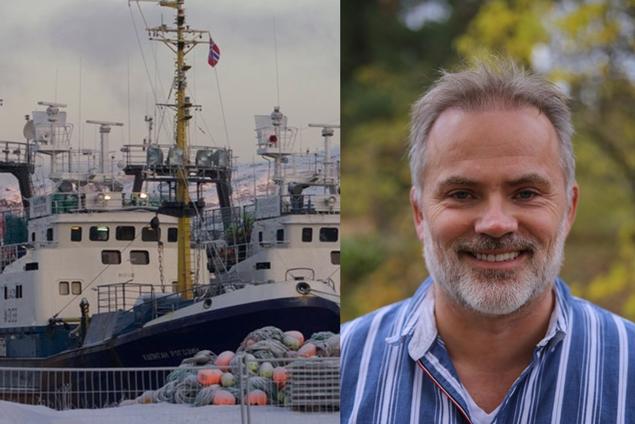Researching Barents Sea Fisheries Management after 2022

The new research project JOINTFISH BARENTS explores the impact of Russia's invasion of Ukraine on fisheries management in the Barents Sea.
The achievements of the Joint Norwegian–Russian Fisheries Commission (JNRFC) are widely regarded as a ‘gold standard’ for international fisheries management. Since the mid-1970s, Norway and Russia have managed the rich fish resources of the Barents Sea jointly, including the world’s largest cod stock. However, with Russia’s invasion of Ukraine in February 2022, an entirely new situation has arisen – one likely to affect the workings of the JNRFC for years to come.
Russia is no longer part of the international marine scientific community and joint fisheries enforcement with other states. There are concerns that this may disrupt the bilateral management regime by Moscow threatening to suspend quota agreements. Such uncertainties pose significant legal and political challenges. JOINTFISH BARENTS aims to investigate the nature and implications of these uncertainties, both legally and politically.
‘I am very excited at having been awarded this project on behalf of the FNI. More than ever, the joint Norwegian–Russian management of the Barents Sea’s rich marine resources is facing a more critical situation than ever before in its nearly fifty-year history’, explains project leader Geir Hønneland.
Hønneland points out that, in order to be prepared for the various scenarios that may follow as a result of the Russian invasion of Ukraine, it is essential for Norway to be equipped with the best knowledge within the law of the sea and international relations, with in-depth competence on the Russian fisheries sector: ‘I am particularly enthusiastic because this project will provide opportunities to collaborate not only with my good colleagues at the FNI, but also with some of the best experts elsewhere in Norway and abroad on legal, political and biological issues in the Barents Sea.’
JOINTFISH BARENTS researchers will closely monitor developments in Russian fisheries policies, management, and debates, using primary Russian sources as their information base.
Arctic Complexities
‘The Arctic region is of central interest to Norway. Russia's war in Ukraine has been hindering international cooperation in the Arctic and drawing increased international attention to the region,’ stated Minister of Foreign Affairs Anniken Huitfeldt in a press release from the Research Council of Norway. ‘These developments have implications for all Arctic states, and we need to understand more about this and its consequences for Norway,’ she added.
‘It is essential to understand what is happening in Russia regarding fisheries in the Barents Sea,’ Geir Hønneland adds. ‘We also aim to contribute to the development of theory and analysis in the fields of law and political science.’
In the study of the law of the sea, the project will contribute to the interpretation and operationalization of the legal duty of coastal states to cooperate in the management of shared fish stocks. Highly-qualified researchers will investigate the resilience of the Barents Sea management regime and analyse its geopolitical implications.
Top Experts on Board
Joint Fisheries Management in the Barents Sea after Russia's invasion of Ukraine (JOINTFISH BARENTS) is funded by the Research Council of Norway, having received a three-year grant of approximately USD 635 000. The project is led by senior researcher Geir Hønneland, accompanied by FNI colleagues Øystein Jensen, Anne Kristin Jørgensen, Olav Schram Stokke, and Andreas Østhagen.
Also on the team are Professor Frode Nilssen from Nord University and Professor Irene Dahl from the Norwegian Centre for Law of the Sea at UiT the Arctic University of Norway.
‘This is the absolute top team in Norway on legal and political aspects of the Barents Sea fisheries management, including relations with Russia’, Geir Hønneland notes enthusiastically.
In addition, international partners in the core group include Professor Erik Molenaar from the Netherlands Institute for the Law of the Sea (NILOS) at Utrecht University, and Dr Rebecca Pincus, Director of the Polar Institute at the Wilson Center in Washington DC, both renowned international researchers.
